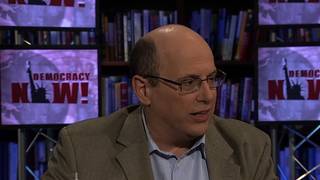
The London Observer broke an explosive story on Sunday. The paper reported it had obtained a top secret U.S. National Security Agency document which reveals the agency is conducting an, aggressive surveillance operation directed at United Nations Security Council members ahead of the upcoming vote on Iraq.
The surveillance involves interception of the home and office telephones and the emails of UN delegates in New York.
The memorandum written by top NSA official Frank Koza and is directed at senior NSA officials. It advises them the agency is “mounting a surge” aimed at gleaning information not only on how delegations on the Security Council will vote on any second resolution on Iraq, but also “policies”, “negotiating positions”, “alliances” and “dependencies”–the “whole gamut of information that could give US policymakers an edge in obtaining results favorable to US goals or to head off surprises.”
But the media in this country is blacking out this explosive story. Not a single broadcast network in this country has done a major story on the issue. Martin Bright, one of the reporters who broke the story, told Democracy Now! that CNN, Fox and NBC had all scheduled interviews with him. But then all three networks called and cancelled. CNN only covered it by accident when media critic Norman Solomon and I surprised them yesterday when we unexpectedly forced it onto the agenda in separate interviews (links to the transcripts are included below).
As for the print media, the Washington Times was the only paper in this country that picked up the story on Monday.
And the next day, on Tuesday, only a few U.S. papers ran stories on the issue.
The Washington Post's story on page A17 headlined: “Spying Report No Shock To U.N.” It begins: “Security Council diplomats today shrugged off a British newspaper report that the super-secretive National Security Agency had ordered an eavesdropping ’surge' on their telephones to determine their voting positions on a resolution that would pave the way for a U.S.-led war against Iraq.” The paper then quoted Pakistan’s U.N. ambassador, Munir Akram: “The fact is, this sort of thing goes with the territory.” He said, “You’d have to be very naive to be surprised.”
The Los Angeles Times reported a similar story, headlining: “Purported Spy Memo May Add to U.S. Troubles at U.N.; 'Top secret' document discusses bugging of council members. Forgery or no, some say it’s nothing to get worked up about.”
These papers downplayed the reaction of the Security Council members, but the reporters who broke the story tell us differently. They say behind the scenes, delegations are furious.
- Ed Vulliamy, US Bureau Chief for the Observer newspaper, co-author of the “Revealed: dirty tricks to win Iraq vote.”
- James Bamford, investigative journalist and author of the books ??The Puzzle Palace: A Report on America’s Most Secret Agency and ??Body of Secrets: Anatomy of the Ultra-Secret National Security Agency.
Related links:











Media Options